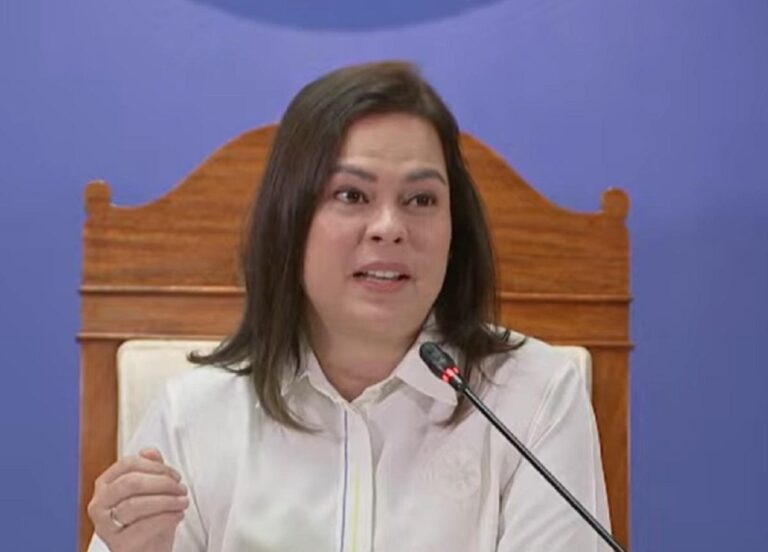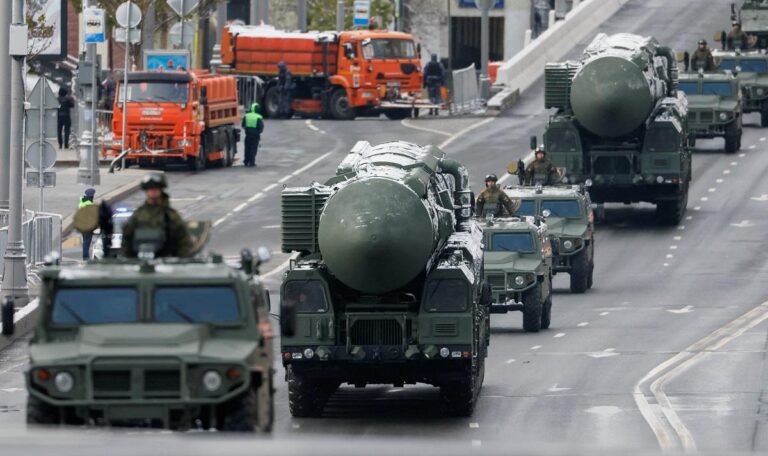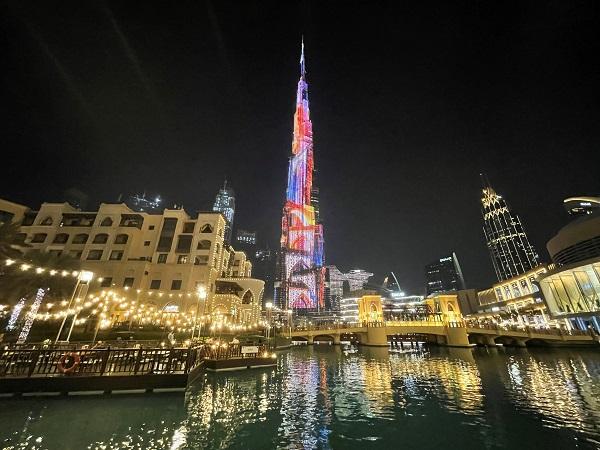DUBAI, United Arab Emirates – “Palagi po akong may takot sa bawat labas ko ng room ko. (I was always in fear whenever I left my room.),” said 31-year-old Mary Montiel of Zamboanga Sibugay.
Riding the metro, Montiel said she’d watch her back for random checks by police asking for ID. “Awa ng Diyos, hindi ako nati-tiyempuhan. (By God’s mercy, I never got chanced upon),” the single mother of two boys said.
Her heart would skip a beat when going to the grocery store or walking outside. “Kahit po sa paglalakad, makakita lang ako ng pulis sa paligid, sobrang kaba na po. Nanginginig sa takot. (I’d tremble seeing the police when I go walking outside.),” Montiel said.
Montiel was an illegal alien for two years and four months – from April 2022 to August 2024 when the ongoing amnesty for overstayers was announced.
Part-time job
She survived by working part time as house cleaner or nanny where sometimes she made AED35 an hour, sometimes more, she said.
“Sa isang araw, minsan isang bahay lang kukuha two hours, tapos after nIyan, may iba naman. Depende po. Minsan may four hours sa isang bahay,” Montiel said. (There were days when I’d clean a house for two hours and then go to the next one. Sometimes, it’d be four hours in one house. It always depends.)
Going to these houses was a challenge because living in Satwa, a Filipino enclave in the middle of the city, she’d need to go as far as Palm Jumeirah, a high-end expat community in the south. This meant taking the metro and staying calm during the ride.
No choice
Montiel had no choice. She needed to stay and continue making money as she was supporting her aging parents and two sons back home. Her 80-year-old mother is almost going blind; her 82-year-old father has had a stroke, she said. They didn’t know Montiel has gone into hiding, making money while living underground.
“Wala pong alam ang pamilya ko sa Pinas sa aking sitwasyon dahil masakitin din ang aking nanay. Ayoko silang mag-alala,” she said. (My family back home didn’t know about my situation. I didn’t want them, especially my ailing mother, to worry.)
Montiel is the youngest of eight children. Her siblings have not been able to help with their parents’ needs. “Kahit isang kilong bigas walang tumulong at hindi rin nila alam ang kalagayan ko (Not even a kilo of rice. They also didn’t know my situation),” she said.
House cleaner
Montiel would save as much as she can from whatever she made cleaning houses so she could regularly send money.
“Minsan AED1,000, minsan AED700, AED500 depende kung magkano kitain ko. Mamamatay po pamilya ko kapag hindi ako nagpadala. Ako lang po bumubuhay sa kanila.
“Kaya ako dito ang nag-a-adjust. One day, one meal. Minsan binibigyan ako ng mga kabayan sa room ng pagkain. Minsan may employer na mabait, binibigyan ako ng pagkain or extrang pera, ‘yun ang pangkain ko,” Montiel said.
(At times, I am able to send AED1,000, sometimes AED700, AED500, depends on how much I make. My family will die if I don’t send money. I am the only one supporting them. And so, I adjust back here. I eat just one meal a day. Sometimes my fellow Filipino roommates would give me food. At other times, a kind employer would give me something to eat or extra money that I would then spend on food.)
She’d routinely ask friends to send the money for her as she has no official ID, which is required at remittance centers.
“Pinapakiusap ko po sa mga nakikilala ko sa part-time na work ko na kung pwede sila ang maghulog ng pera dahil wala po akong legal documents or Emirates ID to transact,” Montiel said. (I ask those I met while doing part-time as house cleaner to send the money for me because I didn’t have legal documents or Emirates ID, to transact.)
The Emirates ID is digitally linked to a national database of people legally staying in the UAE. During random checks, police ask for this ID to check a person’s status on the database.
Budget
To survive, Montiel said she allotted a monthly AED600 budget – AED500 for her bedspace and only AED100 for meals and phone card.
Montiel could have tried waiting tables at restaurants to earn more. But it was too risky, she said.
“Natatakot akong mag-part time sa labas. (I was afraid to do part time where I’d exposed.),” she said.
She would rather stay in her room after work. “Trabaho at room ko lang. Ni hindi nga ako nakatungtong ng Burj Khalifa observation deck,” Montiel said. (My routine is work then back to my room. I haven’t even been able to check out the Burj Khalifa observation deck.)
The observation deck is on the 148th floor of the Burj Khalifa Tower, currently the tallest man-made structure in the world at 1,821 ft. A major tourist attraction, the deck offers breathtaking views of the city.
Employment visa
Montiel came to Dubai in July 2021 on an employment visa furnished by Tadbeer, a domestic worker service center authorized by the UAE Ministry of Human Resources and Emiratisation (MOHRE).
She first worked for a family in Ras Al Khaimah and then to another family, this time, in Abu Dhabi. She ran away in April of 2022, consequently facing fines for doing so and legal actions, including a re-entry ban, for absconding.
A friend brought her to Dubai and helped her find a place to stay. And so began life spent in hiding for Montiel, a high school graduate, who has been a house help since she was 23 – first, in Kuwait and then, Singapore.
Light at the end of tunnel came one day when an overseas Filipino worker (OFW) tried to help her.
Cristy Tan-Beja, a mother of three and an accountant at an oil and gas company for the past 12 years, has been helping distressed OFWs for quite some time. Montiel asked Beja if she could work at their household as nanny and domestic help.
“But her status was too complicated at the time and we couldn’t take the risk. Nevertheless, the communication did not stop. We’ve asked help from a public relations officer. It took almost two years. We have exhausted all ways possible but it did not work, sadly,” Beja said.
Amnesty
Finally, the government, in August 2024, announced a two-month amnesty period for overstayers to come out and either go home with waived fines and a clean slate then return, should they want, to start again; or stay in the country, also without facing legal consequences, provided they obtain a new work visa.
Penalty for overstaying is AED50 per day, according to official guidelines. In this case, Montiel would have been faced with a fine of more than AED24,000, and counting as she overstays longer.
The amnesty started on Sept. 1, 2024. Montiel got her new residence visa on Sept. 10, with help from Beja.
Answered prayer
“It’s an answered prayer! Today as we speak, she is now enjoying her freedom. Praise God from whom all the blessings flow,” said Beja.
“What I keep doing now is posting everywhere to reach as many OFWs to provide the right information about the amnesty and to assist them the best way I could,” added Beja.
She also is part owner of a dining place in Deira, Authentic Angels Cafe and Restaurant, which helps her and husband, JR, in funding their charitable activities with distressed OFWs.
This included payments for Montiel’s paper works and medical screenings, which the couple shouldered at AED8,000, according to Beja. She said they have also spent as much for two other amnesty applicants.
Overjoyed and thankful
Montiel, meanwhile got an employment visa for a job at a cleaning company where she will be paid AED2,000 a month, an amount, she said, she didn’t earn working part-time jobs while in hiding. She said she was paid AED1,500 at her first job with the family in Ras Al Khaimah when she arrived in 2021.
Montiel said she is thankful to the Beja couple for not giving up on her, and to the UAE government for the amnesty program, without which, she’d still be living a difficult life.
“Sobrang saya ko po. Nagpapasalamat po ako sa pamilya Tan-Beja para sa suporta at sa UAE government for the amnesty na kung wala nito ay nakikipagsapalaran pa rin ako. Ngayon makakatungtong na ako ng Burj Khalifa,” Montiel said.
(I am overjoyed. I am thankful to the Tan-Beja family for the support, and to the UAE government for the amnesty, without which I’d still be taking chances. Now, I can finally go to the Burj Khalifa observation deck.)
The Philippine Embassy in Abu Dhabi and Philippine Consulate General in Dubai earlier issued a joint statement urging overstayers to avail of the UAE government’s two-month amnesty program that started on Sept. 1, 2024.
The missions said the program is a fresh start providing all erring expatriates with a chance to rectify their immigration status.
During the first week of the program’s implementation, 2,053 Filipinos came forward to avail of the UAE government’s amnesty initiative, the Philippine Embassy and Consulate General said.


















